Hannay lays the main blame for the failure of the UN mediation up to May 2003 squarely at the door of the Turkish Cypriot leader, Rauf Denktash, but also emphasises the contribution of generic and ‘Cyprus-specific problems’. This is all pulled together in Chapter 13: ‘What went wrong, and will it ever go right’. Hannay concludes that it will only ever go right if the Cypriots themselves take more responsibility for settlement negotiations and Turkey’s EU accession negotiations do not collapse. It is difficult to disagree with him.
This book is of great value to students of diplomacy as well as to those of the Cyprus problem. There are interesting passages on ‘linkage’ in these negotiations (pp. 99-110), the ‘single negotiating text’ (pp. 140-141), venue (p. 156), and telephone calls from the top as a last resort (p. 218). The usefulness (or otherwise) of deadlines in negotiations is an undercurrent throughout the book, as is the importance but great difficulty of ‘sequencing’ related negotiations, while the limitations of a mediation when the time is not ripe – but when this cannot be determined until the effort is made – is perhaps the major lesson. This is one of the best books I have read by a diplomatic practitioner for a long time.
You may also be interested in

A New Generation Draws the Line: Kosovo, East Timor and the Standards of the West
Note: The author of this review compares Noam Chomsky's A New Generation Draws the Line: Kosovo, East Timor and the Standards of the West and David Fromkin's Kosovo Crossing: American Ideals meet Reality on the Balkan Battlefields.

Mediation in International Relations
The practice of mediation in international relations involves third-party intervention to facilitate conflict resolution between parties. Mediators act as neutral facilitators, assisting in communication, negotiation, and finding common ground to reach a peaceful resolution. It is a diplomatic tool used to de-escalate tensions, prevent conflicts, and promote cooperation among nations. Mediation often requires skilled mediators with expertise in conflict resolution and international affairs to navigate complex political dynamics and foster dialogue between conflicting parties.

Cyprus: the search for a solution
Lord Hannay, a senior British diplomat with great experience of multilateral diplomacy, retired in 1995 but was then persuaded to accept the position of Britain’s Special Representative for Cyprus. In this role he played an influential part in the UN-led effort to broker a settlement to the Cyprus conflict until the negotiations temporarily foundered in May 2003, when, with a mixture of relief and regret, he stepped down. (There is a postscript on the referendums held on the island in 2004 on the fifth version of Kofi Annan’s settlement plan.) He has written a brilliant account of the cour...
Definition of Aggression | United Nations General Assembly Resolution 3314
The United Nations General Assembly Resolution 3314 (XXIX) establishes a Definition of Aggression for the purpose of maintaining international peace and security. It outlines acts that qualify as aggression, condemns war of aggression as a crime against international peace, and emphasizes that no justification can validate aggression. The resolution aims to deter potential aggressors, simplify identifying aggression, and protect the rights of victims.
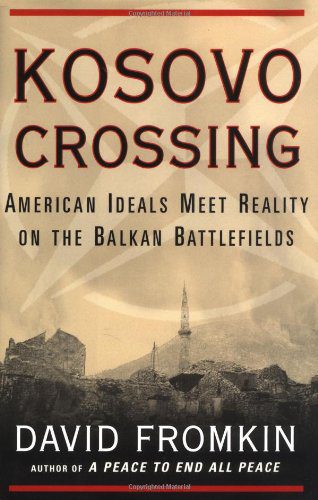
Kosovo Crossing: American Ideals meet Reality on the Balkan Battlefields
The author of this review compares Noam Chomsky's A New Generation Draws the Line: Kosovo, East Timor and the Standards of the West and David Fromkin's Kosovo Crossing: American Ideals meet Reality on the Balkan Battlefields.

Education and Conflict: Complexity and Chaos
The relationship between education and conflict is intricate and tumultuous. Factors such as historical influence, societal norms, and educational policies all contribute to this complex dynamic. Conflicts can disrupt education systems and vice versa, leading to a chaotic environment where the role of education in promoting peace and reconciliation becomes crucial. Understanding this complexity is essential for addressing conflicts and creating sustainable peace-building efforts.

High Noon in Southern Africa: Making Peace in a Rough Neighbourhood
The text is about the challenges of achieving peace in Southern Africa amid regional conflicts and political instability.

The Peace Brokers: Mediators in the Arab-Israeli Conflict, 1948-79
The text discusses the role of mediators in the Arab-Israeli conflict from 1948 to 1979.
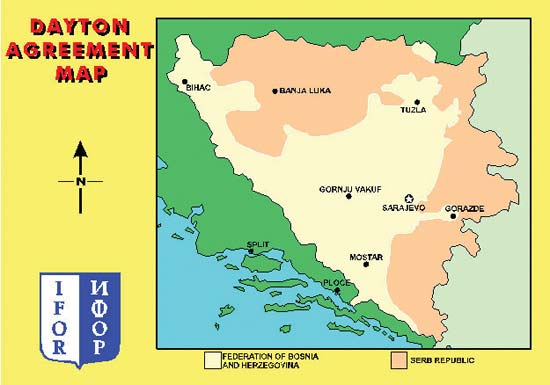
The Secret History of Dayton: U.S. Diplomacy and the Bosnia Peace Process 1995
The Secret History of Dayton: U.S. Diplomacy and the Bosnia Peace Process 1995 recounts the behind-the-scenes negotiations and strategies employed by American diplomats during the Dayton Peace Accords that ended the Bosnian War. The U.S. played a crucial role in brokering peace between the warring factions and outlining the terms of the agreement that led to the successful resolution of the conflict.

A kind of diplomatic incantation: Exchanging British and Japanese diplomats in the Second World War
The content discusses how British and Japanese diplomats were exchanged during World War II in a diplomatic ritual that followed strict protocols to ensure the safety and respect of both parties.

Embassies under Siege
The article discusses recent attacks on embassies around the world, highlighting the increasing frequency of such incidents and the challenges faced by diplomats in maintaining security. Diplomatic missions have become targets for various groups due to political tensions and conflicts, putting staff and facilities at risk. Governments are working to enhance security measures and protect their embassies in response to these threats.
The Falkland Islands War: Diplomatic Failure in April 1982
The text discusses how the Falkland Islands War of April 1982 was a diplomatic failure.

War and the Private Investor: A Study in the Relations of International Politics and International Private Investment
The text is about the impact of war on private investors in the context of international politics and private investment.

Conflict resolution and peace building (disseration by Unisa Sahid Kamara)
Unisa Kamara's dissertation seeks to give an account of the Sierra Leone conflict and the different measures and strategies including diplomatic attempts and efforts that were employed by various parties in trying to secure a peaceful and durable solution to it. The paper discusses the peace building measures and activities that were employed in sustaining the Sierra Leone peace process after the attainment of a negotiated settlement.

Embassies in Armed Conflict
Apologies for the oversight, please provide the content that you would like summarized.
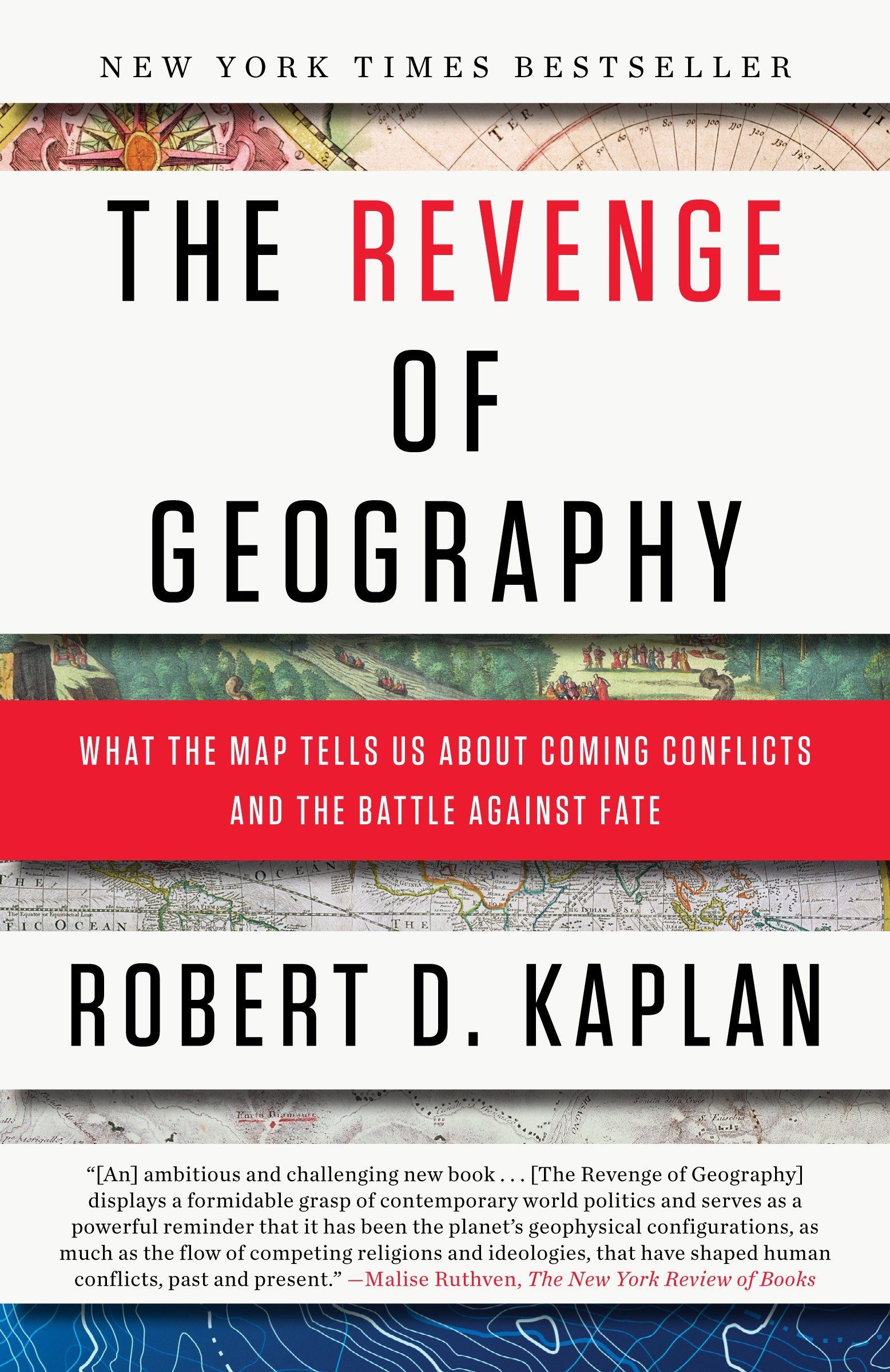
The Revenge of Geography: What the Map Tells Us About Coming Conflicts and the Battle Against Fate
The Revenge of Geography discusses how the physical and political landscapes influence global conflicts and shape our destinies.

Diplomats at War: British and Commonwealth diplomacy in wartime
In their Preface, the editors of Diplomats at War say that the two world wars in the twentieth century had a “catalytic impact upon the practice of diplomacy”; among other things, they continue, this produced “an unprecedented revolution” in the way heads of mission conducted their business.
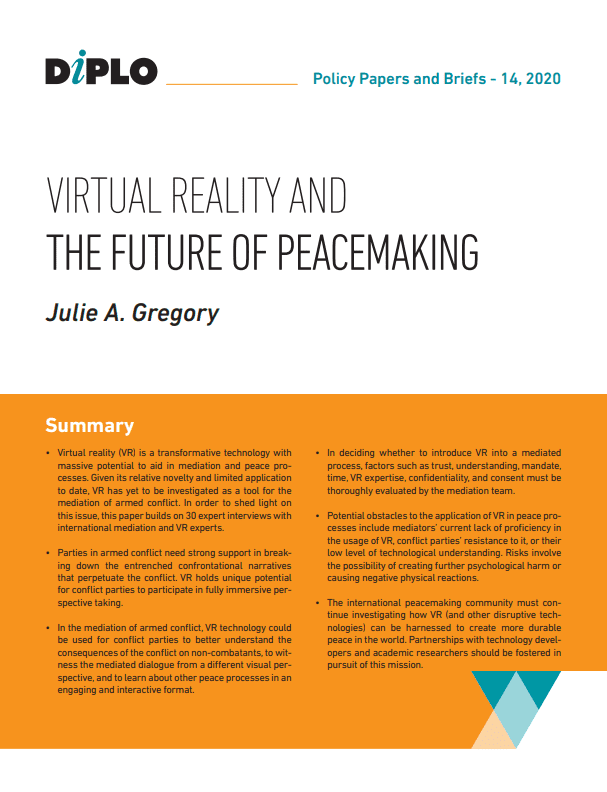
Virtual Reality and the Future of Peacemaking (Briefing Paper #14)
The briefing paper discusses the potential of virtual reality in fostering peacebuilding efforts worldwide. Through VR technology, individuals can develop empathy, understand different perspectives, and communicate effectively, facilitating conflict resolution. VR applications can simulate real-life scenarios, promote dialogue, and reduce prejudice by experiencing situations from another's point of view. This innovative approach has the potential to enhance peacebuilding initiatives and create a more connected and understanding global community.
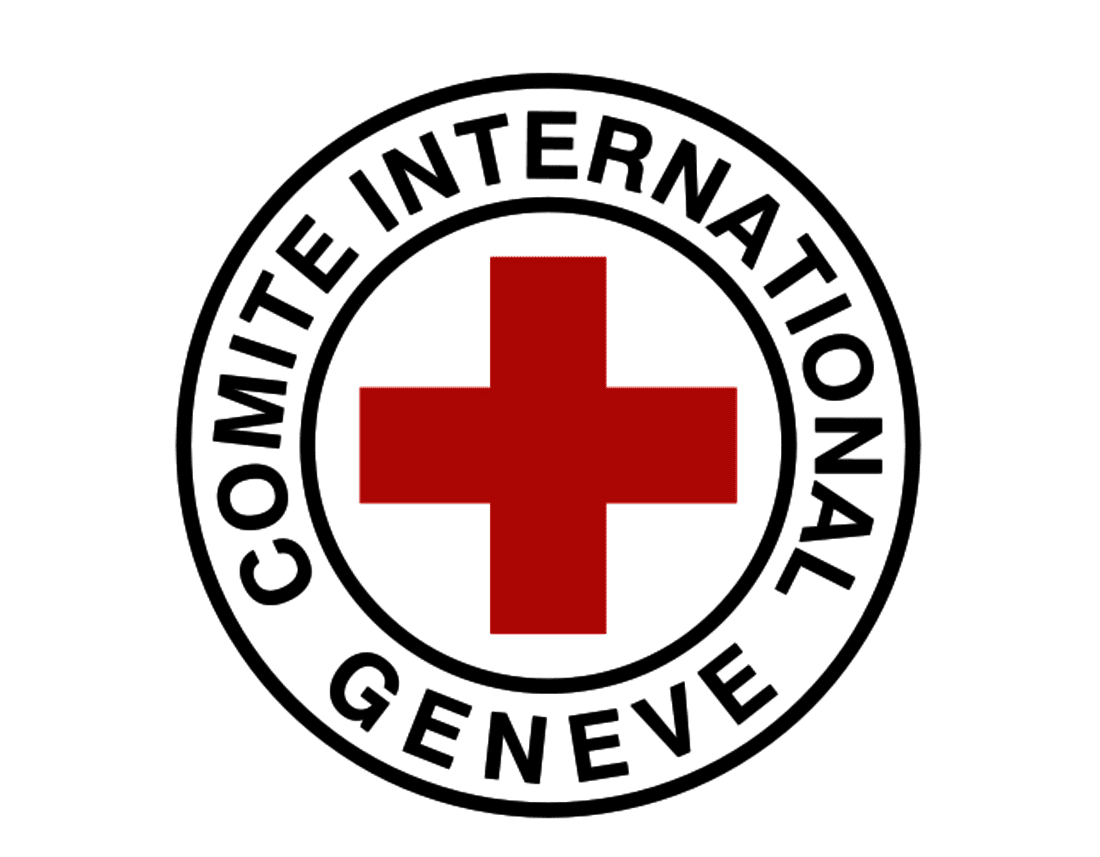
Strengthening of the Coordination of Emergency Humanitarian Assistance of the United Nations
The text discusses the Strengthening of the Coordination of Emergency Humanitarian Assistance of the United Nations.
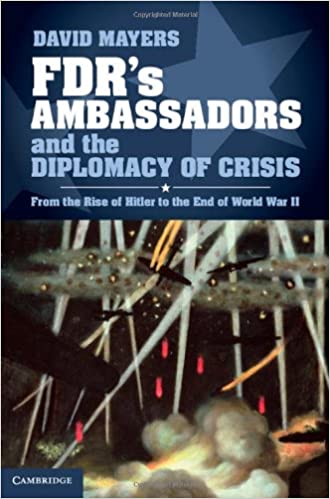
FDR’s Ambassadors and the Diplomacy of Crisis: From the rise of Hitler to the end of World War II
What effect did personality and circumstance have on US foreign policy during World War II? This incisive account of US envoys residing in the major belligerent countries – Japan, Germany, Italy, China, France, Great Britain, USSR – highlights the fascinating role played by such diplomats as Joseph Grew, William Dodd, William Bullitt, Joseph Kennedy and W. Averell Harriman. Between Hitler's 1933 ascent to power and the 1945 bombing of Nagasaki, US ambassadors sculpted formal policy – occasionally deliberately, other times inadvertently – giving shape and meaning not always intended by ...
Intractable Syria? Insights from the Scholarly Literature on the Failure of Mediation
The article discusses the challenges and reasons behind the failure of mediation efforts in Syria based on scholarly literature.

Diplomacy under a Foreign Flag: When nations break relations
The text is about diplomatic relations between countries and the implications of breaking these ties.

Governance and conflict in the Mano River Union States: Sierra Leone a case study
The MRU states (Côte d’Ivoire, Guinea, Liberia and Sierra Leone) experienced more than two decades of bitter conflicts. With the exception of Guinea which was spared a full-scale civil war, the other three neighbouring MRU states went through violent civil conflicts which resulted in massive human suffering, social dislocation and the destruction of the region's economy.
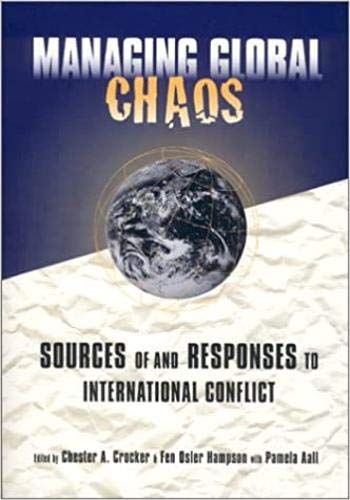
Managing Global Chaos
The message deals with strategies for managing global chaos. It discusses the importance of adaptability, resilience, and communication in navigating turbulent international waters. Leaders are advised to anticipate challenges, foster collaboration, and maintain a proactive approach to addressing crises on a global scale. The text emphasizes the need for flexibility and innovation to effectively manage chaos in a rapidly changing world.
From U Thant to Kofi Annan: UN Peacemaking in Cyprus, 1964-2004
2004 marked the fortieth anniversary of the United Nations presence in Cyprus. Since March 1964, the UN has been responsible for addressing and managing both peacekeeping and peacemaking efforts on the island.
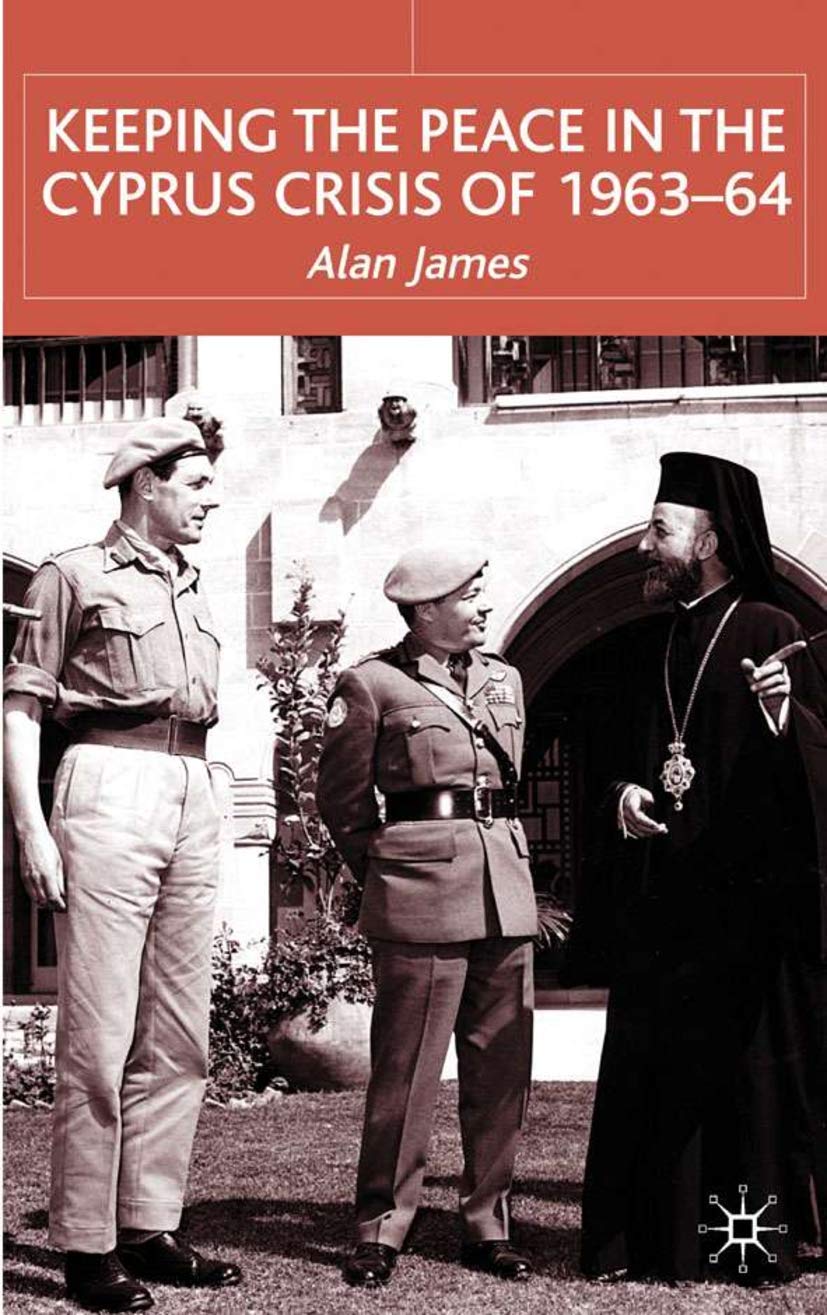
Keeping the Peace in the Cyprus Crisis of 1963-64
After some difficulties, a UN force was established in Cyprus (UNFICYP) following the collapse of the bicommunal independence constitution of this former British colony - a constitution which the Greek Cypriots had always felt too favourable to the Turkish minority - at Christmas 1963. In this book, Alan James, Professor Emeritus of Keele University and leading authority on peacekeeping, provides what is likely to be regarded as the definitive history of the creation of this force.
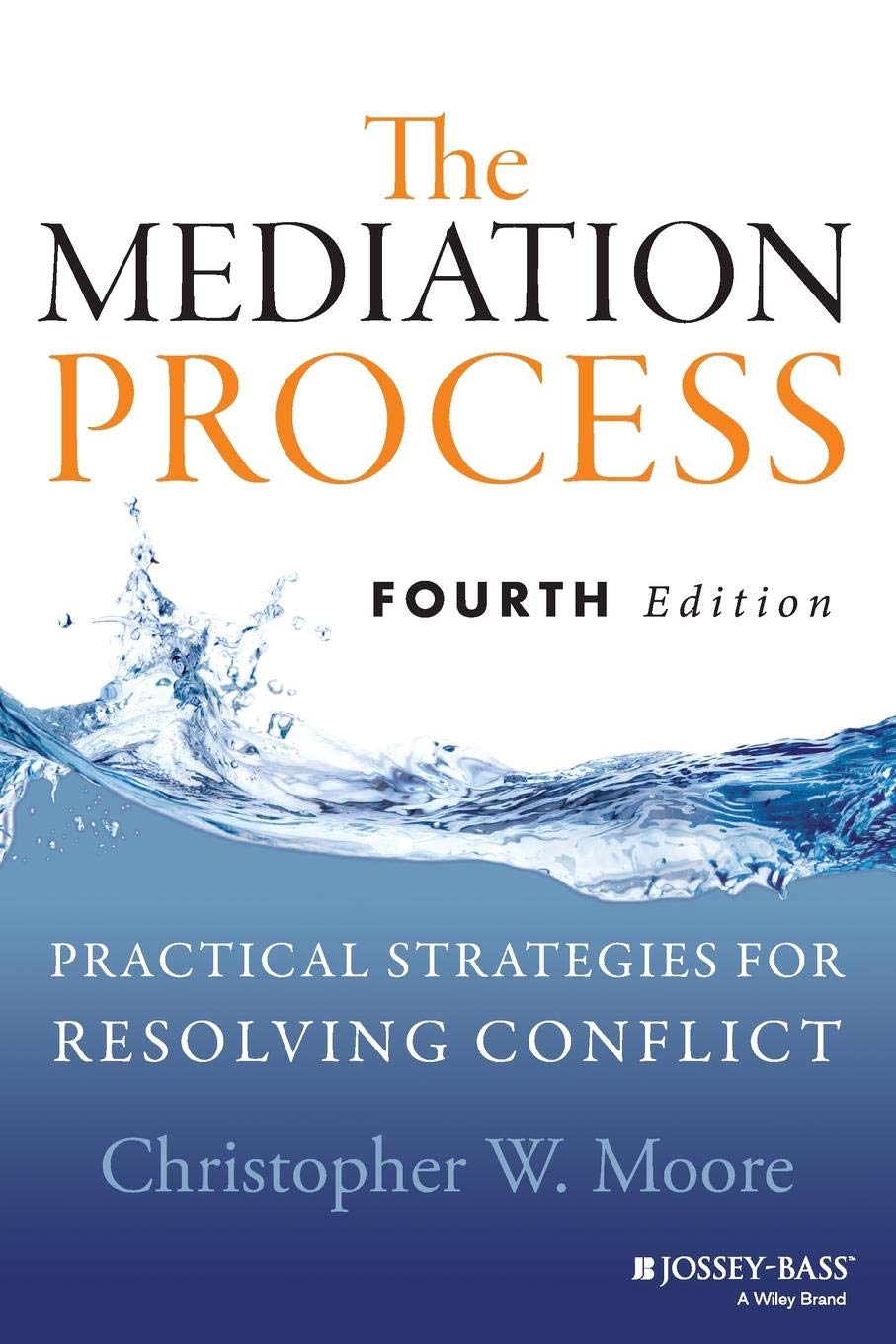
The Mediation Process: Practical Strategies for Resolving Conflict
The Mediation Process: Practical Strategies for Resolving Conflict offers guidance on effectively resolving conflicts through mediation.

The Embassy: A story of war and diplomacy
This book tells the story of the vital role played by the US Embassy in Monrovia in helping to mediate an end to the brutal, 14-year civil war in Liberia in 2003.
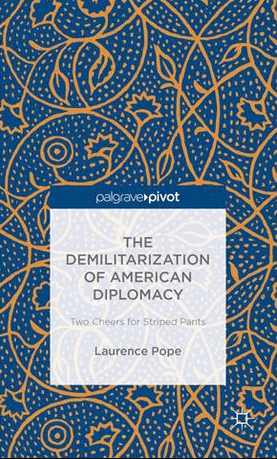
The Demilitarization of American Diplomacy: Two cheers for striped pants
The trenchant contribution to this subject of the outstanding American scholar-diplomat Laurence Pope is published in Palgrave’s ‘Pivot’ series of short books designed to be brought out quickly.

Managing the Cold War: A view from the front line
Michael Alexander, a Russian-speaking senior British diplomat who died in 2002, was a major behind-the-scenes figure in what he calls the ‘management’ of the cold war to a peaceful conclusion.

An Examination of the Role of Women in Conflict Management: Sierra Leone Case Study
This paper examines the role of women in conflict management, using Sierra Leone as a case study.
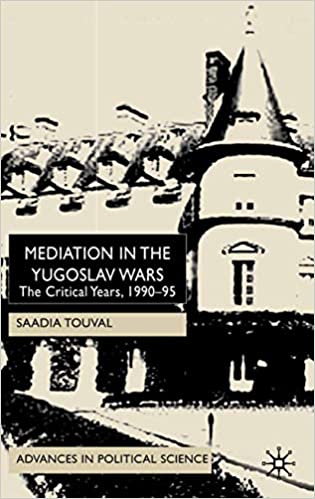
Mediation in the Yugoslav Wars: The Critical Years, 1990-95
The book "Mediation in the Yugoslav Wars: The Critical Years, 1990-95" explores the role of mediation in the Yugoslav Wars during the crucial period from 1990 to 1995. It delves into the efforts made by various individuals and organizations to mediate the conflicts that arose during this time. Through a detailed examination of mediation attempts, the book sheds light on the complexities and challenges faced in trying to bring about peace in the region.

The Search for Peace
The text discusses the importance of seeking peace within oneself and in the world around us. It emphasizes the impact of personal inner peace on creating a harmonious environment globally. The text suggests that by finding peace within ourselves, we can contribute to fostering peace on a larger scale.
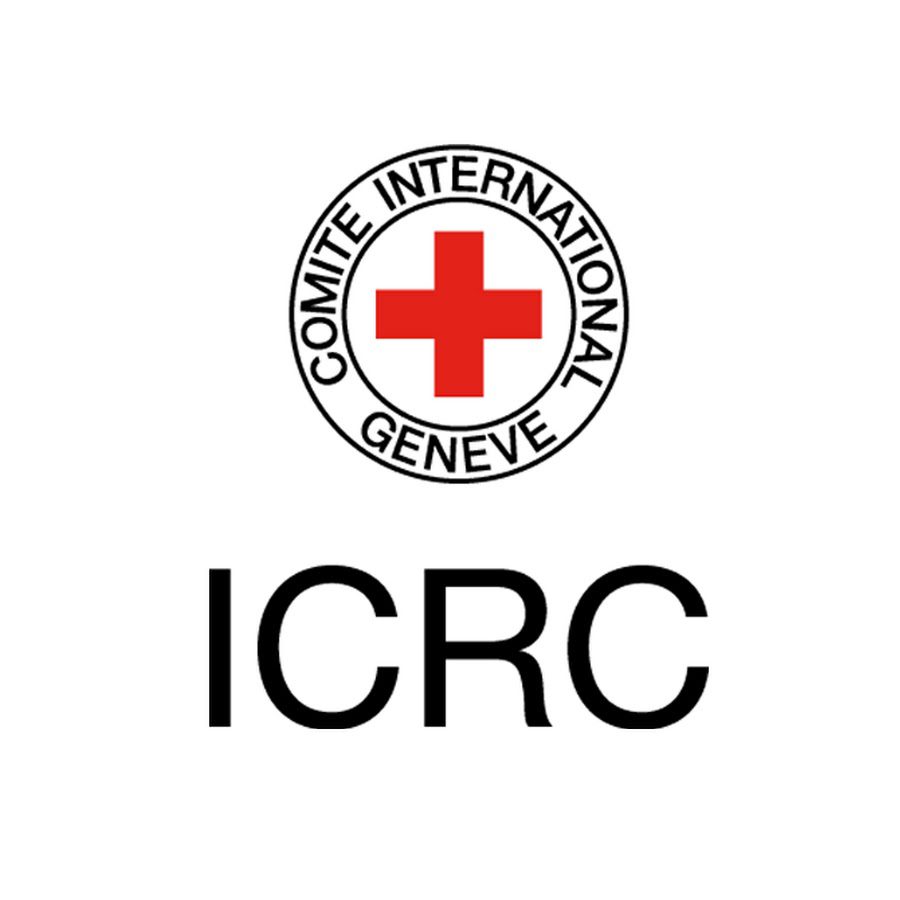
The Fundamental Principles of the Red Cross: Commentary
The Fundamental Principles are the result of a century of experience. Proclaimed in Vienna in 1965, they bond together the National Red Cross and Red Crescent Societies, the International Committee of the Red Cross and the International Federation of Red Cross and Red Crescent Societies, and guarantee the continuity of the Movement and its humanitarian work. In this succinct commentary intended for the general public, Jean Pictet explains the meaning of each of the seven Fundamental Principles; he analyses them on the basis of different criteria and presents all their various aspects, thus mak...
Track 2 diplomacy and Pakistan
Track 2 diplomacy refers to unofficial interactions involving non-governmental actors to facilitate communication and conflict resolution. In the context of Pakistan, such diplomacy can help bridge gaps between governments, promote understanding, and contribute to peaceful resolutions of issues.
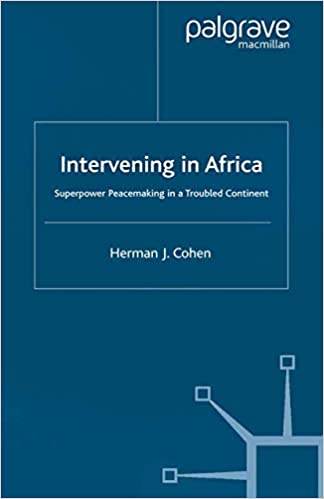
Intervening in Africa: Superpower Peacemaking in a Troubled Continent
The text discusses superpower intervention in Africa for peacekeeping purposes.

Against All Enemies: Inside America’s War on Terror
All memoirs are incomplete; instant ones even more so; and memoirs about security matters are the worst, in this respect. The book, however, manages to disappoint in an unusual way.

DC Confidential: The controversial memoirs of Britain’s ambassador to the U.S. at the time of 9/11 and the Iraq War
The publication of these memoirs in autumn 2005 caused a public furore in Britain so I shall not waste time giving any background on Sir Christopher Meyer. (Just punch his name into Google, which will enable you in the blink of an eye even to find out from the BBC website which records he chose when he appeared on Desert Island Discs.)

United Nations, Divided World, 2nd ed
The message is a placeholder and does not contain any actual content to summarize.

Female leadership in conflict prevention, diplomacy and UN peacekeeping initiatives
The importance of female leadership in conflict prevention, diplomacy, and UN peacekeeping initiatives is highlighted in the following text.
The Responsibility to Protect
The Responsibility to Protect doctrine asserts that states have the responsibility to protect their populations from genocide, war crimes, ethnic cleansing, and crimes against humanity. When a state fails to do so, the international community must intervene responsibly to prevent and protect populations from mass atrocities. This principle emphasizes the importance of upholding human rights and promoting peace and security globally.

Diplomacy Before and After Conflict
The importance of diplomacy in preventing conflicts is highlighted in this text. Diplomatic efforts both before and after conflicts are crucial for resolving disputes peacefully. Diplomacy plays a key role in preventing escalation of tensions, promoting understanding, and finding mutually acceptable solutions. It emphasizes the need for respectful communication, negotiation, and compromise to maintain peace and stability in the international arena. Diplomatic channels must be utilized effectively to address grievances, build trust, and foster cooperation among nations. Diplomacy is a vital too...

Post Cold War diplomatic training
Victor Shale's paper refers to a specific time period: the post-Cold War period which brought about new forms of conflicts, and high levels of terrorism. In the light of the change in traditional diplomacy, his paper examines multistakeholder diplomatic training and its importance as an approach in penetrating different cultures, and examines whether this approach could be used to minimise intractable conflicts.

Barriers to conflict resolution in Africa: Mediating beyond power and ethnicity in the EAC and SADC countries through a Kenyan case study
This paper assesses the relevance of ethnicity and power in conflicts occurring in the EAC and SADC regions through a case study of Kenya. It engages with elites’ power contestation and the manner in which power has historically caused violence and instability in Kenya. Further, an account of researches on ethnicity and its inducing of violence is made. Through this, one discovers the importance of ethnicity beyond that of being a channel for the upsurge of violence.
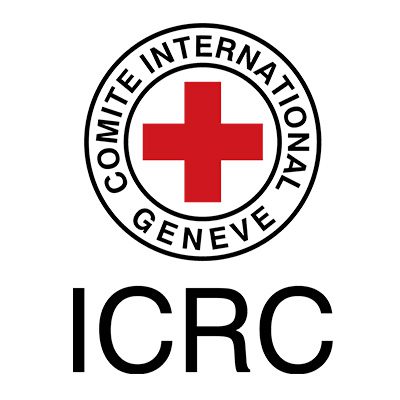
Weapons Overview
The Weapons Overview provides an in-depth analysis of various weapons, including firearms, melee weapons, and explosives, covering their specifications, advantages, and best use scenarios. It aims to assist readers in making informed decisions regarding weapon selection for different situations.
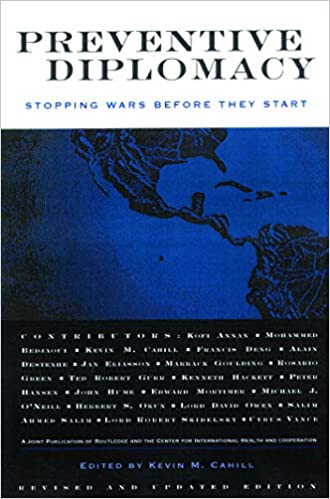
Preventive Diplomacy: Stopping Wars Before they Start
The text discusses the concept of preventive diplomacy as a proactive approach to preventing wars before they begin.

DC Confidential: The controversial memoirs of Britain’s ambassador to the U.S. at the time of 9/11 and the Iraq War
DC Confidential: The controversial memoirs of Britain's ambassador to the U.S. at the time of 9/11 and the Iraq War.
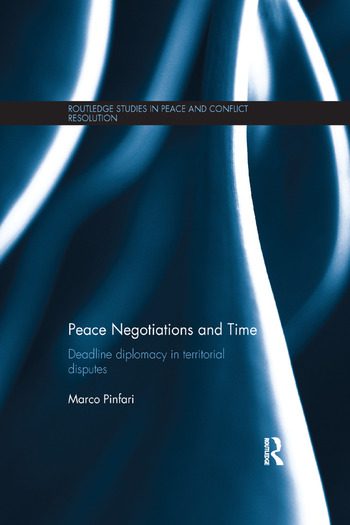
Peace Negotiations and Time: Deadline Diplomacy in Territorial Disputes
The text discusses the importance of time in peace negotiations for territorial disputes, emphasizing how deadlines can impact diplomacy and the need for effective time management in reaching agreements.
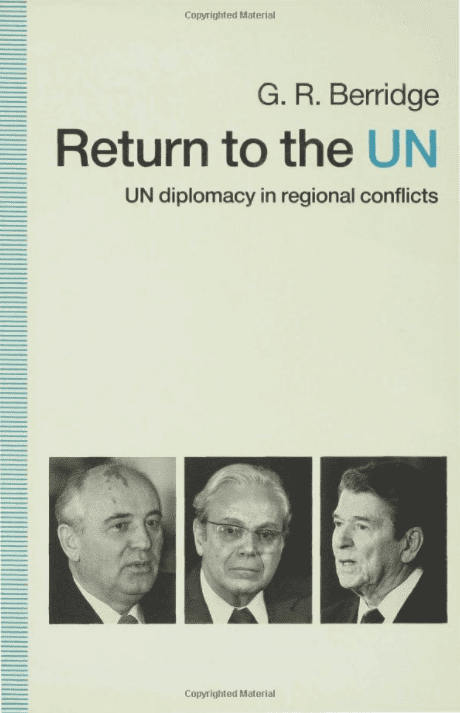
Return to the UN: United Nations diplomacy in regional conflicts
‘… lively … persuasive … careful analysis… This is a very readable study, combining narrative strength with political acuity, and informative on the years of disappointment … Much has changed since the UN’s annus mirabilis, but Berridge’s conclusions still stand’, Nicholas Sims, London School of Economics, Millenium.
Metaphor and War: The Metaphor System Used to Justify War in the Gulf
The text discusses how metaphors are used to justify war in the Gulf.

The Role of Nigeria in Restoring Peace in West Africa
Remmy Nweke attempts a search into the rationale behind Nigeria‟s decision to make Africa the cornerstone of her foreign policy.

Regional water cooperation in the Arab – Israeli Conflict: A case study of the West Bank
The conflict between Israel and Arab countries, with several devastating wars, is about territory and land, and maybe just as crucially on the water that flows through that land. This dissertation, an analysis of the management of water in the West Bank, as a case study, seeks to underline the possibility of using soft power diplomacy, in addition to mediation and water cooperation, for a more collaborative kind of approach to the conflict.

Decision-Making in the UN Security Council: The case of Haiti, 1990-1997
Question: 'When is a "Foreword" not a "Foreword"? Answer: When it is written by Adam Roberts. This book started life as an Oxford doctoral thesis under the supervision of Professor Roberts, and the former supervisor has done both the former student and readers of this book a great service by prefacing it with a seven-page essay in which he underlines its importance in convincing detail. So this, unlike ninety-nine per cent of examples of the same genre, is a Foreword that should not be ignored.

The Breaking of Nations: Order and Chaos in the Twenty-First Century
The message is a summary of the book "The Breaking of Nations: Order and Chaos in the Twenty-First Century.
The latest from Diplo and GIP
Tailor your subscription to your interests, from updates on the dynamic world of digital diplomacy to the latest trends in AI.
Subscribe to more Diplo and Geneva Internet Platform newsletters!
Diplo: Effective and inclusive diplomacy
Diplo is a non-profit foundation established by the governments of Malta and Switzerland. Diplo works to increase the role of small and developing states, and to improve global governance and international policy development.


